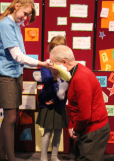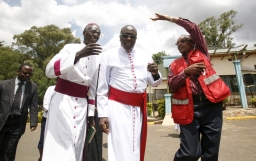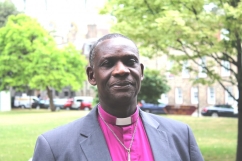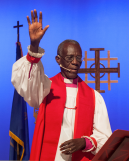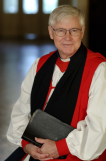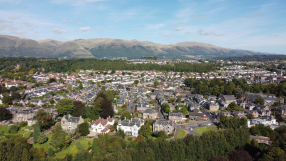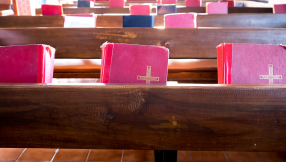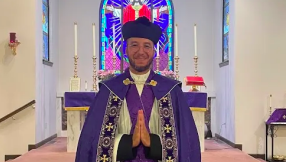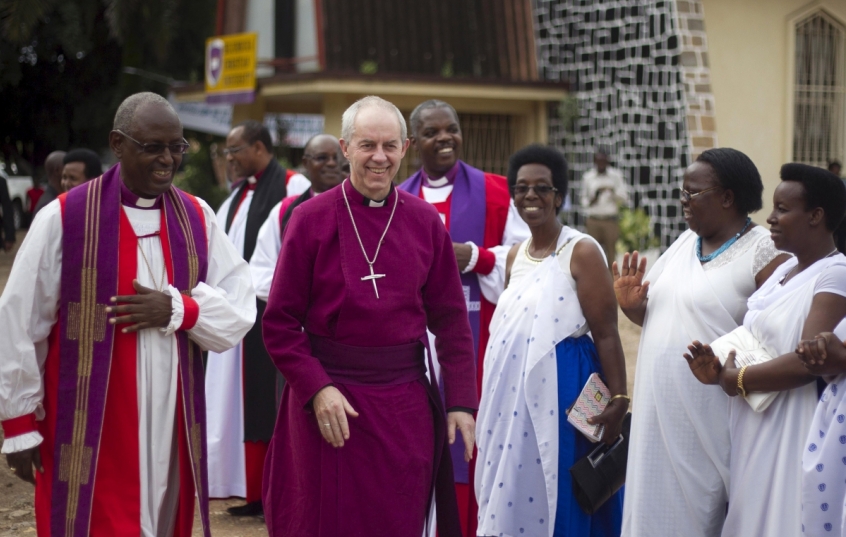
The Archbishop of Canterbury has stated that the "consequences" imposed on the US Episcopal Church by leaders of the worldwide Anglican Communion have been "fully implemented".
Archbishop Welby posted on Facebook in the days after this month's meeting of the Anglican Consultative Council in Lusaka, Zambia. Two provinces, Uganda and Nigeria, boycotted the meeting because of the attendance of delegates from the Episcopal Church.
However, for constitutional reasons those delegates were legally entitled to attend.
Archbishop Welby said the Primates' Meeting decisions had been "clearly" supported and accepted.
"No member of the Episcopal Church stood for office in the ACC or Standing Committee. The consequences of the Primates meeting have been fully implemented," he wrote.
The Anglican Consultative Council unanimously agreed a resolution backing the Primates' decisions, which were to limit participation of the Episcopal Church for three years in the wake of its decision to endorse gay marriage.
Speaking to ACNS as he prepared to fly out of Lusaka at the end of the meeting, Archbishop Welby welcomed the resolution. "The resolution clearly supports and accepts all the Primates' Meeting conclusions," he said.
In his report to the council last week, the Archbisbop reminded delegates that the Primates' Meeting has no legal authority over provinces.
Over time, he said, developments in the life of the Anglican Communion are accepted or rejected in a way that leads to consensus. "Thus, issues in 1920 around contraception, in Lambeth 1930 and 1948 around divorce were at the time seen as threatening the unity of the communion.
"We have been here before. And they were seen as as much of a serious difficulty as issues of sexuality today. Reception goes both ways. There has been a consensus against lay presidency, despite significant pressure in favour of it in the past, but the reception process ended up informally, relationally, not accepting it."
Outlining the consequences for the Episcopal Church following its decision to change Church law to permit same-sex marriage, he said: "There is a time limited restriction in governance and representative roles; the Primates said that for a three-year period the Episcopal Church should not take part in decisions on matters of doctrine or polity. They can speak but we suggested that they should not vote, nor should they represent the Communion on external bodies such as those dealing with interfaith or ecumenical matters."
The Bishop of Connecticut in the US, Ian Douglas, who had been expected to stand for election for the position of chair of the council, announced last week he would not do so. He said: "While I pray that I can continue to be of service to the Anglican Communion in some new way in the future, I believe that my not pursuing election as chair of the ACC at this time will best facilitate our walking together in unity as the Anglican Communion, and that is my highest priority and my greatest hope and prayer."
The three Episcopal Church delegates in Lusaka also said in a letter to their own church: "Because this ACC meeting was held in the shadow of the January Primates Gathering and Meeting that sought to restrict our participation as members from the Episcopal Church, we want to assure you that we participated fully in this meeting and that we were warmly welcomed and included by other ACC members."










